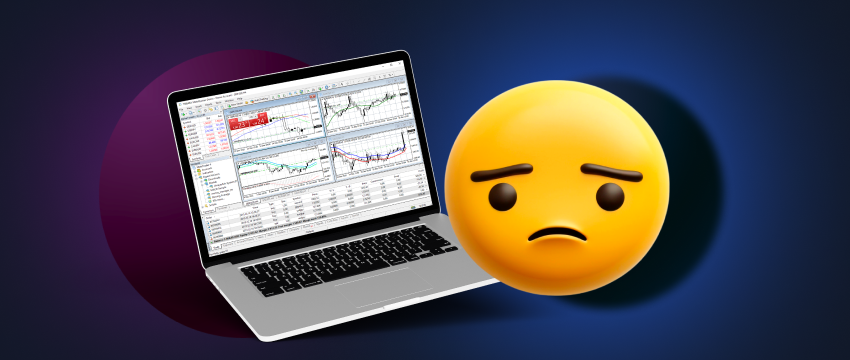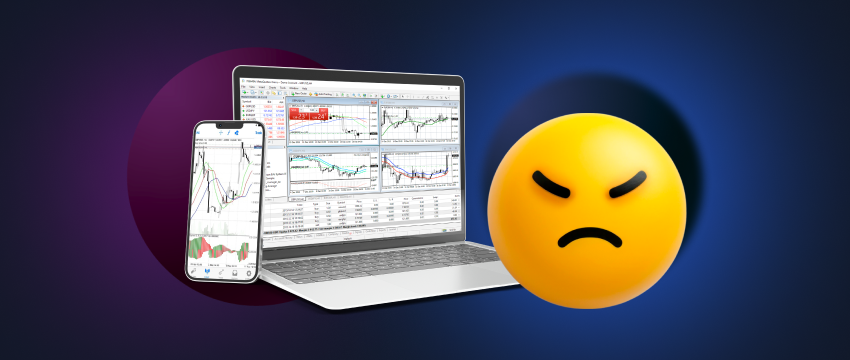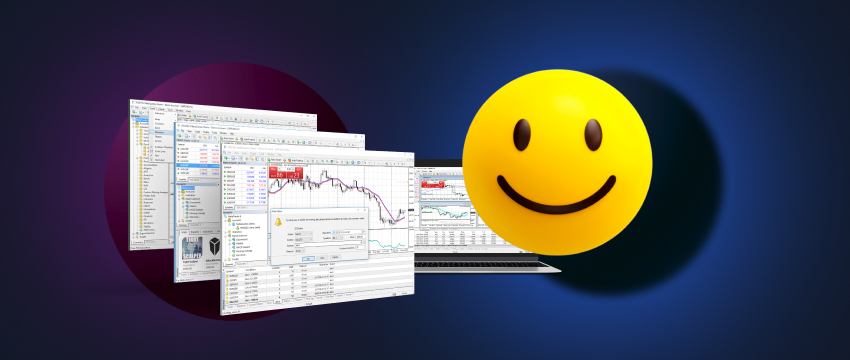Emotional trading is a part of trading psychology and refers to the act of taking financial decisions based on feelings rather than logical thinking or objective analysis. The feelings vary. They may include excitement, stress, greed, anxiety, panic or even the fear of missing out (FOMO). The problem with decisions based on one’s emotions .
However is that the results are often time less than desirable, with poor or costly financial outcomes a common consequence. But how does one recognise a decision that is ultimately emotionally driven?
When do they occur and how can they be mitigated to avoid a substantial loss of capital? Let’s find out.
Key characteristics of emotional trading
الجشع
The market is performing well and you find yourself becoming overly optimistic. This eeling grows, leading to a tendency to overtrade in hopes of achieving higher returns. Optimism quickly turns into greed, leading you to take on excessive risk and enter trades you normally wouldn’t.
The problem with this form of emotional trading is that the want for more clouds sensible decision making, resulting in adverse trading outcomes.
الخوف
Fear is another common emotion driving trading decisions, particularly during market downturns. It’s that moment when panic sets in, and you start exiting positions out of fear of further market decline. Like greed, fear can become overwhelming, leading to irrational, panic-driven decisions that seem hasty once the fear subsides.
FOMO
FOMO is a “thing,” a feeling evoked in various situations, whether socially, at work, in friendships, and more.
The fear of missing out in the context of تداول usually occurs when a trader purchases an asset or assets at higher prices due to the fear of missing out on potential returns. Problem is, this often leads to frenzied or impulsive decision making with negative impacts.
Revenge trading
Revenge trading is an emotional response and typically arises when a trader has experienced monetary losses. For example, you’ve enter several trades, but for various reasons, they perform badly, with winning trades turning into losing trades, incurring a substantial loss that you hadn’t quite anticipated.
As a result, losses are quickly covered by executing trades hastily, without proper التحليل الفني, leading to further loss of funds.
Do this enough times, and it becomes a devastating pattern filled with shame that can put the trader in a worse position.
Overconfidence
The tendency to become overconfident can and does occur in trading. A winning streak may lead to excessive risk taking by a trader, based on the belief in greater knowledge or skills. However, this can quickly turn to complete disregard for the potential flaws of their thought process.

Other interesting features of trading emotionally include:
- herd behaviour: whereby a trader will mimic the actions of the crowd rather than pursue their own independent financial analysis.
- confirmation bias: which occurs when traders seek validation for their beliefs or opinions and ignore evidence that contradicts them.
- emotional attachment: It refers to a trader developing a strong emotional connection to a financial instrument and holding it regardless of its performance or market volatility.
- anchoring: It is referred to as cognitive bias and occurs when a specific price point is weighted more than current market conditions or future potential, sometimes leading to incorrect financial decisions.
Strategies to reduce costly mistakes from emotional trading
Now that you are able to recognise the signs of emotional trading, you are better able to implement strategies to counteract the costly mistakes they incur. These are some of those strategies:
Develop a trading plan
To mitigate emotional trading risks, build a trading plan outlining goals, risk tolerance, budget, and set pre-defined rules.
Such a plan provides a framework to guide decisions, avoid impulsive behaviors, and stay focused, regardless of market conditions.
Use trading automation
الرافعة المالية automated trading tools to limit the impact of emotional reactions and reduce potential losses. This includes using stop-loss orders to automatically sell a particular asset when a certain price point has been reached to limit losses.
Four types of stops exist, namely percentage stop, volatility stop, chart stop and time stop. Alternatively, traders can also make use of take-profit orders which work to lock in profits. This works by setting a pre-defined take-profit level which, when reached, triggers the closing of a an open position to automatically secure the profit.
Keep a trading journal
A trading journal is a great way to record your trades, including your reasons for making those trades, and the consequent results.
Reviewing past trading decisions helps identify behaviors and emotional triggers, leading to more informed and rational future decisions.
Use effective risk management techniques
Another way to mitigate emotional reactions in trading is to make use of risk management tools to reduce the risk of capital loss.
Some of these include :
- Portfolio diversification (spreading your capital across multiple asset classes rather than on one single trade).
- Effective position sizing (the amount of capital allocated to a particular trade).
- Maintaining adequate liquidity (to meet margin calls).
- Proper leverage management (using leverage carefully to minimise the risk of amplified losses).

Practice emotional control
Getting a proper handle on your emotions is key to more postivie financial outcomes. This might involve walking away from your trading platform when feelings of overwhelm, anxiety, or stress arise.
It could also be engaging in mindfulness practices to gain better control of your emotions. By mastering your trading psychology, you’ll be better equipped to deal with your feelings, improving your chances of trading success.
Stay educated
Staying informed through continuous education can help you recognise and mitigate and counteract emotionals. There are many ways to learn about everything to do with trading, particularly on the internet which has a wealth of resources to choose from for free or at a limited cost.
Popular formats of learning include podcasts, seminars, webinars, e-guides, videos and blogs. In fact, most traders offer many of these learning tools to their traders to help them become more skilled. This includes T4Trade who seeks to keep their traders better informed so as to make trading decisions based on data and insights, rather than feelings.
Use a demo trading account
A demo trading account could be considered a learning tool, especially because it allows a trader to gain practical trading experience in simulated trading environment, without putting their own capital at risk.
A demo account gives a trader the time to build their confidence to emotional trading so that when they begin live trading, they are able to make decisions based on experience and skills rather than knee-jerk, unplanned reactions to their emotions.

Sign up with T4Trade
T4Trade is top-tier, award-winning broker that offers flexible trading conditions, exceptional learning resources, and excellent, 24/5 multilingual customer support. In addition, T4Trade offers competitive spreads, flexible leverage, fast and easy withdrawals and deposits, and quick execution of trades. Traders can choose from various account types designed for all levels, from beginners to professionals.
إخلاء المسؤولية: هذه المواد مخصصة للأغراض الإعلامية والتعليمية العامة فقط ولا ينبغي اعتبارها نصيحة استثمارية أو توصية استثمارية. T4Trade ليست مسؤولة عن أي بيانات مقدمة من أطراف ثالثة مشار إليها أو مرتبطة برابط في هذا الاتصال.



